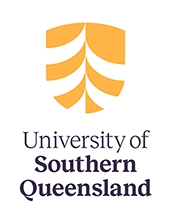About the Journal
Aims
The Journal of Pathways Education and Research aims to:
- Advance pathways education as a field of scholarly inquiry that bridges vocational and higher education, and that addresses issues of access, equity, and participation.
- Promote critical engagement with existing theories, practices, and policies that shape learners’ educational trajectories.
- Encourage scholarship that not only showcases innovation but also interrogates, critiques, or re-imagines current approaches to teaching, curriculum design, and institutional practice.
- Foster dialogue among researchers, educators, policymakers, and practitioners to strengthen the coherence and quality of pathways across educational sectors.
- Develop a robust evidence base that informs national and international discussions on post-secondary education, lifelong learning, and social inclusion.
Scope
The Journal of Pathways Education and Research focuses on the diverse and interconnected spaces of pathways education, with particular attention to the Australian context and its broader global significance. Areas of interest include, but are not limited to:
- Enabling programs, bridging and foundation courses, and other preparatory initiatives.
- Vocational education pathways and transitions into higher education.
- Undergraduate certificates, diplomas, and alternative tertiary-level entry programs.
- Work-integrated learning, credit transfer, and recognition of prior learning.
- Student diversity, inclusion, belonging, and success in post-secondary transitions.
- Curriculum design, assessment, and pedagogical innovation informed by theory and research.
- Institutional, community, and policy frameworks that support participation and progression.
- Theoretical and conceptual analyses of widening participation, equity, and capability development.
The journal welcomes submissions that apply rigorous theoretical, empirical, or methodological approaches to understanding pathways and transitions. Contributions may include original research, conceptual papers, or critically reflective analyses of practice. Practice-oriented work should move beyond description to provide critical insight, theoretical engagement, or evidence of impact. Submissions that challenge dominant paradigms, propose alternative models, or critique established practices in enabling, vocational, and higher education are particularly encouraged.
Journal History
Following on the success of the UniSQ College’s 2023 Pathways Education Colloquium, this journal has been established to drive a research agenda in pathways education, and, more broadly, widening participation in higher education, as a field of research.
Types of submissions
Journal of Pathways Education and Research considers multiple types of submissions in the Journal:
- Research papers (maximum 8000 words) showcasing original and theoretically inflected research into any aspect of pathways education and/ or widening participation.
- Papers that critically interrogate existing policy, practice, or theory in pathways education and/ or widening participation (maximum 8000 words), and that may contribute to building theory and/ or propose new approaches in these realms.
- Practice reports (maximum 4000 words) showcasing an aspect of teaching and classroom practice.
- Book and resource reviews (maximum 1000 words) which may be traditional book reviews or reviews of new pedagogical resources.
All submitted papers should be original, unpublished, and not in consideration for publication elsewhere at the time of submission to Journal of Pathways Education and Research.
All articles will be refereed in a double-blind review process by at least two reviewers with expertise in the relevant subject area.
Suspected plagiarism in a submission:
Journal of Pathways Education and Research uses Turnitin plagiarism detection software - and may utilise the software if the editorial team or the reviewer/s have concerns about original content.



